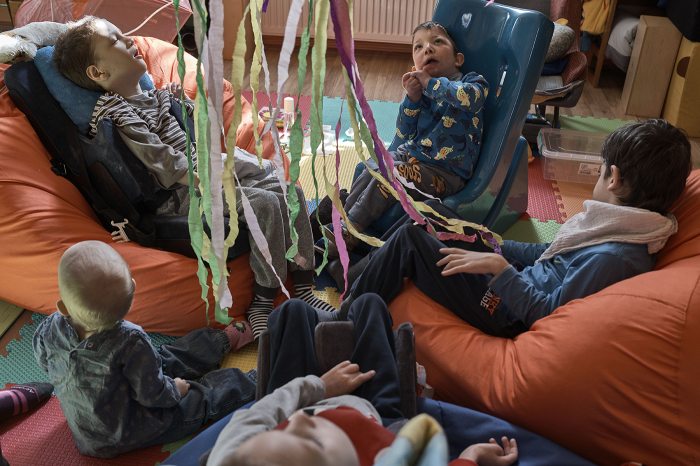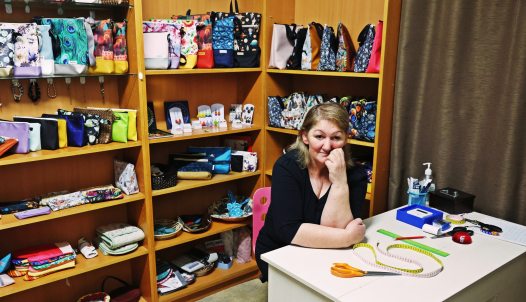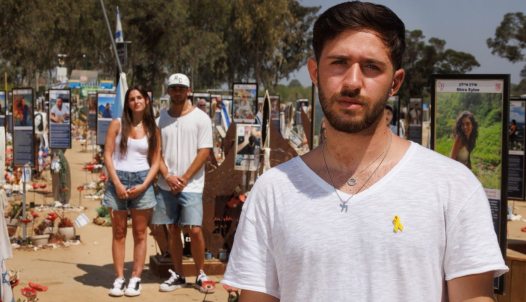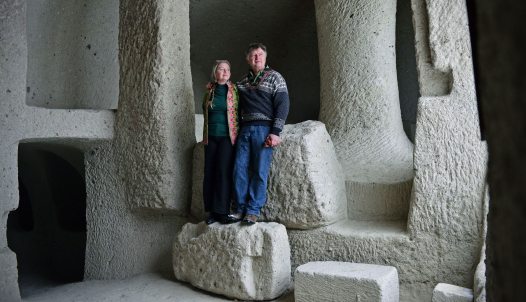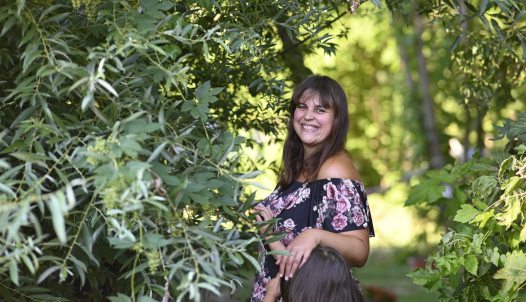On the threshold of another world – The Last Homely House Foundation
This year, the Foundation Völgyzugolyház Alapítvány a Kacifántosokért (the name ‘Völgyzugoly’ comes from J.R.R. Tolkien and means the ‘last homely house’, or ‘elven fortress’) was awarded the Jószolgálat Prize in the voluntary social work community category. The dream of a mother of two severely and multiply handicapped children came true in the educational and caring community unique in Hungary.
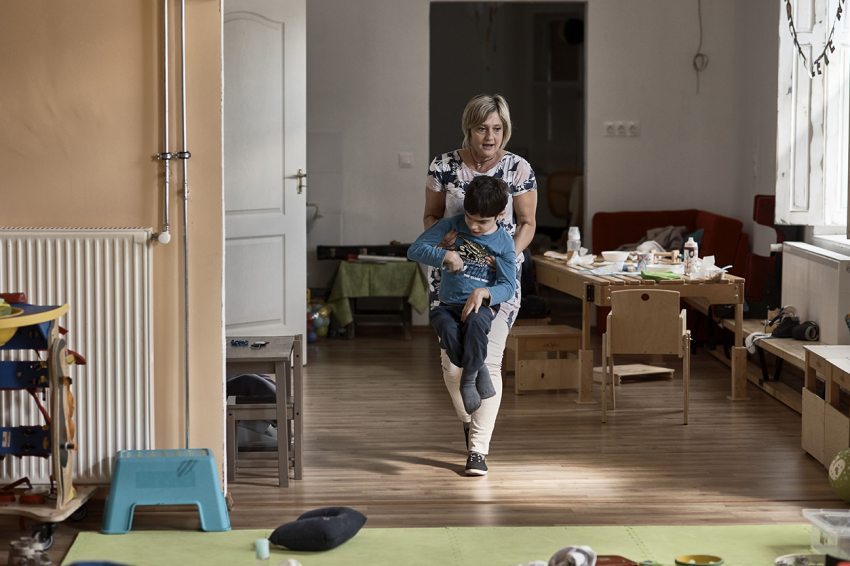
It is half past nine in the morning and the day has started with a group skill development class in the 17th district Völgyzugolyház. Nothing in the house is as I had imagined it. In the house ‘furnished’ with tents, musical instruments, hammocks, wall bars and a variety of toys, the first thing I see is a hair dryer – one of the therapy teachers is using it to keep a few colourful crepe paperchains floating in front of the children seated around her. “The application of basal stimulation is extremely important, but Petra, our therapy teacher, will tell you more about this,” Zsuzsanna, one of the founders of Völgyzugolyház, starts our conversation. “These children require 24-hour-a-day supervision. They have to struggle with many things and are helped in this not only by their families but the teaching team who have a variety of professional backgrounds,” says Zsuzsanna.
Zsuzsanna Somlai and Katalin Borbély Horváthné established Völgyzugolyház Foundation in 2017 with the objective of creating a space, family programmes and a new educational format for seriously handicapped children. It is no secret that they, too, are affected: both are bringing up severely and multiply handicapped children.
“We come from the same place as the parents who come to us: earlier, we also went with the kids from one development centre to the next.”
“Having been unable to find a suitable and inclusive school, we set up Völgyzugolyház. At the moment, four development specialists, one therapy teacher assistant and a manual therapist, who all work different hours, join the four children. We plan to extend the enrolment of children as we find more specialists,” says Katalin Borbély Horváthné.
“In the case of severely handicapped children, quite often just one person is not enough when it comes to development and caring, taking into account the child’s weight, the level of mobility handicap, unexpected epileptic seizures or orthopaedic problems demanding great care,” adds Zsuzsanna.
Whereas in state institutions one carer has to look after several children, in Völgyzugolyház there is one expert to each child.
Zsuzsanna and her team bit off almost more than they could chew when they set about realizing their own special educational concept, which they believe is capable of offering an alternative to the existing system for looking after seriously and multiply disabled children. The ‘prototype’ of their concepts can be found in Vanília Street in Budapest’s 17th district. “It is important to make it clear, this is an experimental model. Family development day-care (CSAFNA) is not designed to perfect the existing institutional formats but to offer an alternative alongside existing educational and care institutions. Our aim is that severely, multiply handicapped children are also able to fulfil their schooling attendance requirements of a minimum 20 hours a week as set down in the act on public education. Unfortunately, across the country as a whole two-thirds of concerned children do not meet this standard. Another of our goals is to offer afternoon day-care facilities for children. All this is organized at local, community level, thereby guaranteeing that we are truly reacting to the needs of families,” says Zsuzsanna.
The Foundation intends to have CSAFNA officially recognized, and to do this they have reached out to the Ministry of Human Capacities. Zsuzsanna and her team would like to have professional and content frameworks laid down that would regulate and assist in making their work fully efficient. But they also want to make sure that any implemented system is not overregulated and that the finalized structure could be realized within other districts of the capital or even in the countryside.
But let’s get back to Völgyzugoly! At the moment, there are 20 classes a week in the house on loan from the local government, made up of child developmental care and individual and group activities over a total of three days – currently, this is how the founders see their abovementioned concepts realizable. “We are receiving a considerable amount of attention from specialists, institutions, parental NGOs and families because we are providing a much-needed service. Those people who work here – who, by the way, are employees of Standardized Special Education Methodological Institute (EGYMI) – can travel with us not along well-worn pathways but totally new routes, they can develop their own concepts, which demands far more independent and creative thinking.”
“It is a great pleasure to be taking part in the sort of initiative that perhaps others will pursue after us,” says Petra Bircsák, therapy teacher, following one of the group intellectual development classes.
In the course of their day-to-day activities, special needs experts try to create situations where the children feel they can actively influence the day’s activities. “Everyone has their own song that they use to identify themselves at the beginning of the day. This is the communicator, they use this to say hello,” says Petra showing me the device. “If, let’s say, I stop the blowing, I ask my class, who would like me to continue. Then one of the children gives a sign. This method is useful because it makes them feel that they have free choice.”
Each week the children deal with a different topic in individual and group classes. When I was there it was the turn of spring weather, so the day was all about the wind, sunshine and rain. “Because they have less developed sensory organs, we use the practical sessions to give them experience that will help in understanding. They learn to pay attention and of course we invest particular emphasis in communication,” says Petra about the basal stimulations mentioned earlier.
“This is the yes-no tool,” the therapy teacher says showing me another device. “If, for instance, I see that somebody does not want to complete the given task, by using this device I can find out what he/she really would like to do.”
Every object gives a different sound, is a different shape or colour. But while working, special needs teachers also use body language and gestures. “We can establish a connection with them even by lifting a hand. We also have motional equipment that is necessary, for instance, in developing balance,” notes Petra.
In the meantime, Zsuzsa, a mother of one of the children, joins the conversation. “Every time we step in through the door, my son is smiling from ear to ear. He goes home from here exhausted because he has done so many things; some are the sorts of things that I cannot give him at home,” the mother relates. When I ask her how she found out about the work of the foundation, she tells me that several people told her about this place while she was in the street and even on the bus. “I like it a lot that there is a teacher for every child. My seven-year-old son has not been bored for a single second since he started coming here. You can also see how happy he is.
“Of course, it was also important to have a family-like atmosphere and being here is just like being at home. Until now I had to be with my son around the clock, but now I have time for other things, for example, my partner and I can plan joint programmes…”
Völgyzugolyház is a ‘work in progress’, it is not an institution where the parents can just drop off their children. Here, everyone mutually collaborates in the interests of the children. “We started off from a single children’s room in 2016, after which we had to wait for a year to get our own building. We renovated the house where we are today over the course of an entire year, but luckily we are all surrounded by a supportive environment. We received huge outside help in the building work and the families concerned also did their bit in the renovation. One of the fathers undertook to do the parquet flooring, another plumbed in the dishwasher and did the tiling,” says Zsuzsanna in winding up the chat. The foundation’s next project will be doing up the garden, part of the funding for which has already been earmarked in a tender supporting local communities. As I travel home from Völgyzugolyház, it passes through my mind that I would be happy to do my own bit in this joint effort.
